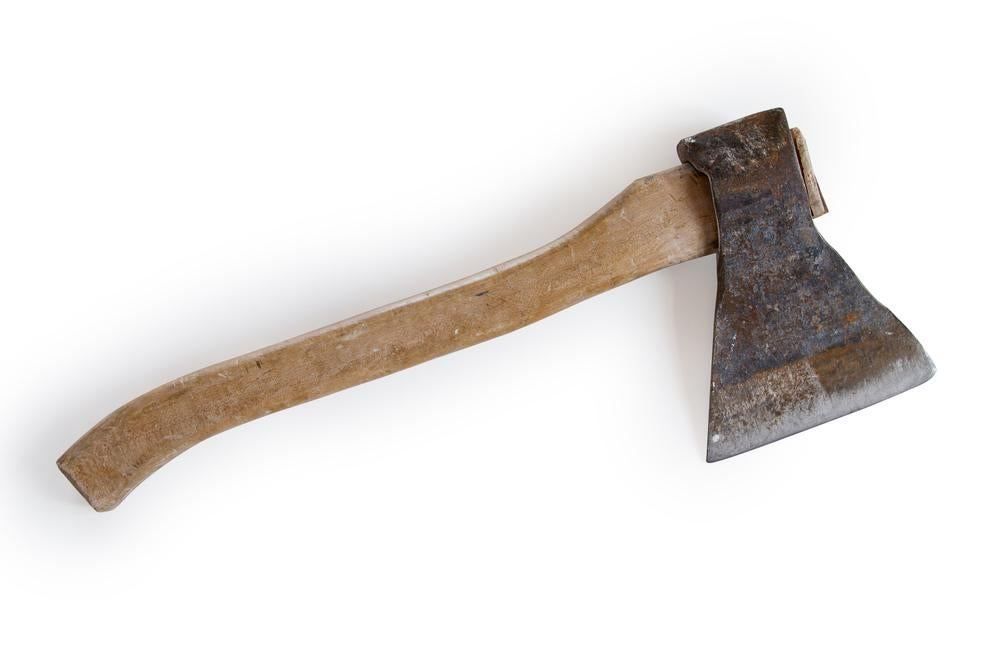The Hatchet Job of the Year Award is the worst award of its generation. I apologize for the abrupt nature of this declaration, but to hell with it; somebody had to say it, and I’m actually taking back that apology, because I’m basically pretty pleased with myself for being the one to do so. The award, now in its third year, was set up by an online magazine called the Omnivore. This publication identifies itself as “A site for people who like books. Whatever the format.” The dullness of this self-description actually gives a pretty accurate sense of the operation’s overall level of interest. As far as I can see, it seems to be a straightforward aggregator of reviews from other publications, a sort of Metacritic for books (but with “pin-ups”). The fact that they assign star ratings to these books will give you some idea of the level these jokers are operating at; if there’s such a thing as subsistence content farming, this is it. We’re scraping the very bottom of the lit-crit dust bowl here, folks.
The award, they claim, is intended to honor the “writer of the angriest, funniest, most trenchant book review of the past twelve months.” I’ve been browsing through the reviews on the just-announced shortlist for this year’s prize, and let me tell you, I haven’t so much as snuffled in mild amusement. None of these reviews are even angry—they’re mostly just wearily opportunistic. Anger is an energy, as John Lydon put it, and the kind of criticism singled out for praise by the Hatchet Award seems, by and large, far too sluggish to be animated by anything as stimulating as real literary indignation. (As David Wolf has pointed out in Prospect, much of the shortlist is “competent but unremarkable.”)
Take, for instance, A.A. Gill’s review of Morrissey’s memoir, which I’m guessing is probably a front-runner for this year’s award. It would make sense, at least from a P.R. perspective—and, let’s be honest, there is basically no other perspective here—to give the thing to a marquee name. Perhaps Moz himself might even show up, like Sandra Bullock to the Razzies! (The actual prize itself, by the way, is a year’s supply of potted shrimp, which, if you’re in the market for some whimsically self-deprecating English humor, you might find just about passes for drollery.) The review is damning, yes, but neither in its prose nor its analysis does it even threaten to rise above entry-level competence.
Like so many examples of this kind of swordsman-of-letters shtick, Gill’s review gestures toward the form of wit without ever really putting the work in to attain it. On one of the passages of the memoir he deems to be comparatively well-turned, Gill tells us that “it stands out like the reflection of the moon in a sea of Stygian self-justification and stilted self-conscious prose.” This is both hysterically overwrought and woefully undercooked, and it basically falls to pieces as a quip when you start questioning a) how a sea could be Stygian and b) how such a notional body of subterranean water could ever reflect the moon in the first place. As with any discussion of A.A. Gill, by the way, it’s worth bearing in mind here that he once shot and killed a baboon in order to satisfy his curiosity about what it feels like to murder a human being. (I’m pretty sure he must have bored a few actual people to death over the centuries with his Sunday Times restaurant column, but that’s obviously not visceral and intimate enough for ol’ Double-Aces.) Not only is he a dull writer, in other words, but he’s also a demonstrably horrible guy. In an Omnivore-style system of assessment, you’d have to give him a moral rating of one star, tops.
The problem with the Hatchet Job of the Year Award isn’t just that it publicizes and rewards mediocre and shallow criticism by the kind of people who’ll shoot a baboon point-blank in the tits for their own amusement. It’s that it actively promotes such criticism, going out of its way to ensure that more of it gets written. I don’t have a problem with critics taking the axe to books—I’d be kind of a hypocrite if I did—and I don’t have a dog in this declawed fight between the Shih Tzus of snark and the lapdogs of smarm. What I care about is reading interesting criticism—criticism that says something provocative or challenging or insightful, that makes an argument about and around a book; I want to read criticism that stands alone on its own essayistic merits, that is neither an exercise in exhibitionist hate-reading nor an abject capitulation to the “hooray for books” P.R. imperative.
The Hatchet Job Award appeals, in its depressingly calculated way, to the basest and most self-serving of journalistic instincts, and seems to arise out of, and perpetuate, a misunderstanding of what criticism actually is. If I was looking for cheap vicarious thrills, I’d watch wrestlers smashing chairs over each other’s heads; at least those guys get paid reasonably well for their efforts. If these reviews were actually any fun to read, that would be something, but frankly I’d rather sit through a full Latin Mass than read any of these half-assed perfunctory takedowns again.
What’s most depressing about the whole thing is the certainty that reviews are now assigned and written with this award specifically in mind. Reviewers are going to seek out bad books precisely in order to display their dull hatchets to the utmost. Editors will seek out exactly the writers who will be most likely to hate and trash a book. And what we’ll end up with is a lot more hacky pot-shot delivery mechanisms, like this one you’ve just read. If I wind up getting nominated next year, I’ll take my mess of potted shrimp to go.
